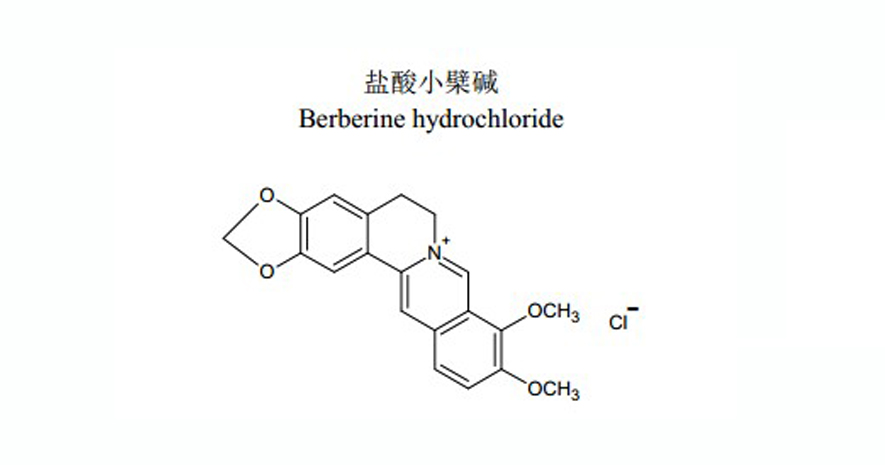Berberine Hcl is a plant alkaloid derived from various plants, including Goldenseal, Barberry, and Chinese Goldthread. Here’s a brief overview of its chemical structure and physical properties:
Chemical Structure of Berberine HCL
- Chemical Formula: C₁₃H₁₄ClN₁O₄
- Molecular Weight: Approximately 336.72 g/mol
- Structure: Berberine has a characteristic isoquinoline structure, consisting of a benzylisoquinoline core with a methoxy group and a quaternary ammonium group, which gives it its basicity and allows it to exist as a chloride salt (HCl).

Physical Properties of Berberine HCL
- Appearance: Yellow crystalline powder
- Solubility: Soluble in water (due to the hydrochloride form), ethanol, and methanol; poorly soluble in nonpolar solvents.
- Melting Point: The melting point of Berberine HCl is around 170–175 °C.
- pH: It is typically acidic in nature due to the presence of the hydrochloride salt.
Biological Properties
Berberine exhibits various pharmacological activities, including antimicrobial, anti-inflammatory, and antidiabetic effects. It has been studied for its potential in treating conditions like diabetes, high cholesterol, and gastrointestinal infections.
If you need more specific information or details about its uses, let me know!
Efficacy of Berberine HCL
Berberine Hcl is a compound extracted from various plants, including goldenseal and barberry. It has garnered attention for its potential health benefits, particularly in the following areas:
- Blood Sugar Regulation: Berberine may help lower blood glucose levels and improve insulin sensitivity, making it a subject of interest for managing type 2 diabetes.
- Cholesterol Levels: Some studies suggest that berberine can reduce LDL cholesterol and triglycerides, potentially supporting cardiovascular health.

- Weight Loss: It may aid in weight loss by enhancing metabolic rate and fat loss.
- Antimicrobial Properties: Berberine Hcl has shown activity against various bacteria, fungi, and viruses, which might contribute to its use in treating infections.
- Gut Health: It may help maintain gut health by balancing gut bacteria and alleviating symptoms of conditions like irritable bowel syndrome.
The efficacy of berberine can vary based on factors like dosage, individual health conditions, and the presence of other treatments. While some studies show promising results, more extensive research is needed to confirm these benefits and establish standardized dosing guidelines. Always consult with a healthcare professional before starting any new supplement.
